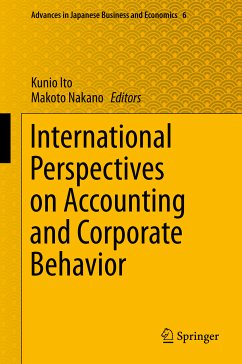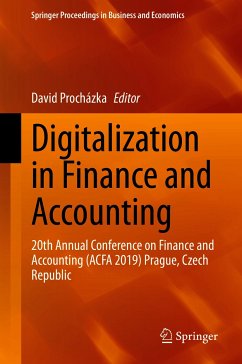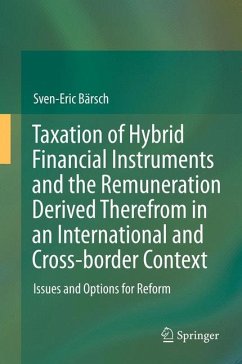
International Perspectives on Accounting and Corporate Behavior (eBook, PDF)
Versandkostenfrei!
Sofort per Download lieferbar
72,95 €
inkl. MwSt.
Weitere Ausgaben:

PAYBACK Punkte
36 °P sammeln!
Despite the globalization of accounting standards occurring through convergence to International Financial Reporting Standards, local accounting systems are deeply intertwined with each country's unique institutions such as its corporate system, disclosure practices and enforcement mechanisms. First, this book empirically analyzes the effects of globalization and localization of accounting rules on corporate behavior such as earnings management, signaling, investment behavior and dividend payout policy. Second, the book unravels the economic consequences of disclosure based on the concept of s...
Despite the globalization of accounting standards occurring through convergence to International Financial Reporting Standards, local accounting systems are deeply intertwined with each country's unique institutions such as its corporate system, disclosure practices and enforcement mechanisms. First, this book empirically analyzes the effects of globalization and localization of accounting rules on corporate behavior such as earnings management, signaling, investment behavior and dividend payout policy. Second, the book unravels the economic consequences of disclosure based on the concept of self-disciplining enforcement such as management forecasts, environmental disclosures and risk disclosures by Japanese firms. This volume is a step forward in understanding the link between accounting and corporate behavior based on a new institutional accounting approach.
Dieser Download kann aus rechtlichen Gründen nur mit Rechnungsadresse in A, B, BG, CY, CZ, D, DK, EW, E, FIN, F, GR, HR, H, IRL, I, LT, L, LR, M, NL, PL, P, R, S, SLO, SK ausgeliefert werden.













